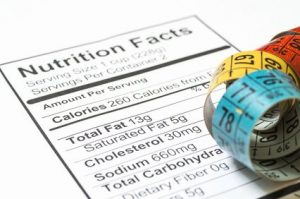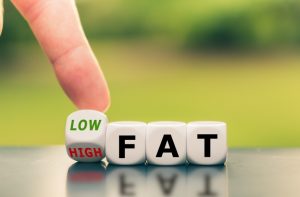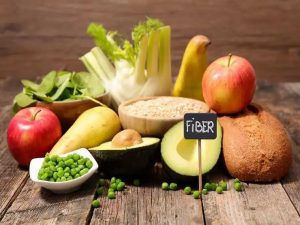The new year is here and many people are making weight loss their new years resolution. But with so much information out there, it’s hard to know what is right for us.
We are going to reveal some of the common myths about weight loss to try and help guide you on your weight loss journey and help you reach your goal this year.
Let’s get started!
Myth: You’ll be OK with a high protein/low carb diet
Fact: This type of diet aims to secure most of the daily required amount of calories from protein foods, such as meat, dairy products and eggs, with a very small part taken from foods containing a lot of carbs (bread, pasta, potatoes and fruits). The biggest problem with this diet is that many common and popular foods are forbidden, which makes it easy for the user to get bored or frustrated. When boredom and frustration set in, quitting time is never far off. Another problem is the lack of nutrients that are usually brought in by carbohydrate foods, while allowing the user to eat bacon and cheese that raise cholesterol levels.
The bottom line is that high protein/low carb diets result in fast weight loss in some users, but it’s not just fat that goes away. People also lose some of their lean muscle mass and a lot of water as the kidneys work harder to rid the body of excess waste from protein and fat.
The added stress to your kidneys is not healthy at all and, in the long run, will lead to dehydration, headaches, feelings of nausea and dizziness. Before engaging in a long-term diet, you would do well to discuss it with your physician. And if you are really keen on dieting, try a balanced diet first, because it will help you lose weight without hurting your system.
Myth: Permanent weight loss can be achieved with fad diets.
Fact: This is yet another common myth among the weight loss crowd. Like any other diet that tells you to cut this or that food from your daily meals, fad diets are not healthy for you. The cornerstone of any diet is supplying the body with all the calories, proteins and minerals it needs. diets that cut out foods without regard for the needs of your body cannot be healthy for you. Fad diets fail to deliver on the promise of permanent weight loss because people will always crave the forbidden foods and will always end up breaking the rules and ditching the diet.
The key to making weight loss permanent is more Exercise and to avoid eating food that makes you fat without nourishing your body. Our extensive studies confirmed the importance of exercising and of a well-balanced diet.
Myth: Fat makes you fat
Fact: The only low fat foods that are also low in calories are fruits. The rest of the huge low-fat or non-fat group are not a safe choice if you are dieting. These products may have added sugar, starch or flour to make them taste better, which means extra calories that do not belong into your diet. So make sure you check the list of ingredients on packages whenever you decide to buy low-fat.
Fat provides around 9 calories per gram, compared with only 4 calories per gram of carbs or protein.
Fat is very calorie-dense and commonplace in junk foods. Yet, as long as your calorie intake is within a healthy range, fat does not make you fat.
Additionally, diets that are high in fat but low in carbs have been shown to cause weight loss in numerous studies.
While packing your diet with unhealthy, high-calorie junk foods laden with fat will definitely make you fat, this macronutrient is not the sole culprit.
In fact, your body needs healthy fats to function properly.
Myth: Switching to vegetarian food will help you lose weight and stay healthy.
Fact: I know this is a hard pill to swallow, but no food plan will work for you unless you take charge of your eating and make sure that everything that goes past your lips is the right kind of food. The key here is to be absolutely sure that the vegetarian diet will give your body all the nutrients and calories it needs. Eating heaps of foods that do nothing for you from the nutritional point of view, outside maybe of filling your stomach, can bring you a lot of trouble in the future.
Since plants tend to have a lower concentration of nutrients than meat, you will have to eat more food than before to make up for this difference. Not to mention that a strictly vegetarian diet will not get you enough vitamin B12, vitamin D, iron, calcium and zinc. These substances are taken mostly from dairy products and eggs in a regular diet, but true vegetarians can’t touch those. You’ll have to rely on the few and uncommon vegetables that can provide these substances.
Myth: Dairy products cause heart problems and make you fat.
Fact: Well, thanks to modern medicine everybody knows that eating a lot of dairy products is a surefire path to high blood pressure and stroke, although a large group of people from France refuse to die despite the large quantities of cheese and wine they consume.
Dairy products are the main source of calcium that keeps your bones strong and healthy. It is absolutely essential for children and can be in no way overlooked by adults. Dairy products also contain vitamin D, which is crucial to maintaining the normal levels of calcium and phosphorus in your bloodstream.
If you don’t want to gain weight from dairy products, then choose low-fat or non-fat brands. There are enough of those around. If you are lactose-intolerant, drink soy or rice milk. It does not taste exactly the same as true milk, but it’s still good and nutritious.
Butter and margarine are the only dairy products you should worry about. They do contain big levels of fat. Still, if you can’t do without them, at least eat butter. Margarine is an over-processed fat that is not particularly good for you. Butter may be a bit fatter, but it definitely is the healthier of these two.
Myth: All calories are equal
Fact: The calorie is a measurement of energy. All calories have the same energy content.
However, this does not mean that all calorie sources have the same effects on your weight.
Different foods go through different metabolic pathways and can have vastly different effects on hunger and the hormones that regulate your body weight.
For example, a protein calorie is not the same as a fat or carb calorie. Replacing carbs and fat with protein can boost your metabolism and reduce appetite and cravings, all while optimizing the function of some weight-regulating hormones. Also, calories from whole foods like fruit tend to be much more filling than calories from refined foods, such as candy.
Myth: Eat less, move more
Fact: Body fat is simply stored energy. To lose fat, you need to burn more calories than you take in. For this reason, it seems only logical that eating less and moving more would cause weight loss.
While this advice works in theory, especially if you make a permanent lifestyle change, it’s a bad recommendation for those with a serious weight problem.
Most people who follow this advice end up regaining any lost weight due to physiological and biochemical factors. A major and sustained change in perspective and behavior is needed to lose weight with diet and exercise. Restricting your food intake and getting more physical activity isn’t enough.
Instructing someone with obesity to simply eat less and move more is like telling someone with depression to cheer up or someone with alcoholism to drink less. Not ideal right?
So, we encourage you to find the best way for YOU to lose weight.
Happy New Year!







Be First to Comment